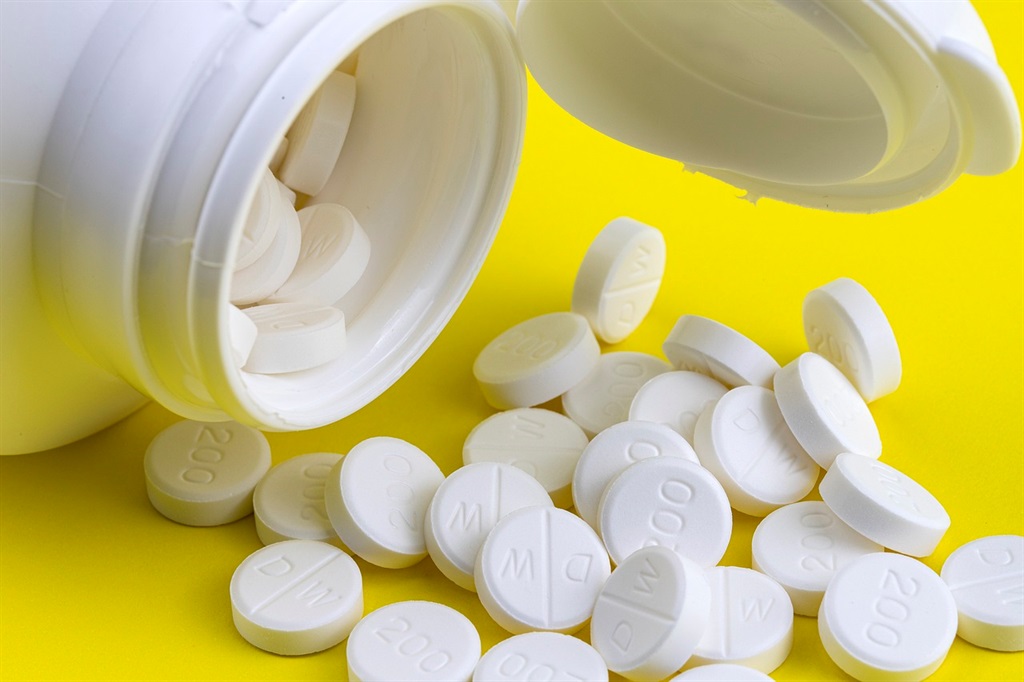
The medicines you use on a regular basis could be harming your kidneys. Knowing how to protect your kidneys can help prevent you from developing chronic kidney disease and other life-threatening conditions.
In a recent statement by Discovery Health, it was emphasised that both prescribed medications and over-the-counter drugs, as well as chronic use of illicit substances or alcohol, can potentially harm kidney function. This includes medications administered to patients during hospitalization, which may also pose risks to kidney health.
A study by the American Academy of Family Physicians cites that up to 20% of kidney damage in a population could be caused by prescription and over the counter (OTC) drugs. Among the elderly, this can be as high as 66%.
The kidneys are a pair of bean-shaped organs found at the back of the body at about the level of the waist. Each kidney holds thousands of filtering units. As our blood moves through them, they filter waste products and extra water out and these are released in our urine. On average, the kidneys filter half a cup of blood every minute.
Common medications that cause harm to the kidneys are:
- Nonsteroidal anti-inflammatory medicines commonly used to treat headaches and pain.
- Diuretics, also known as a water tablets, are used to remove excess water and salt from the body.
- Certain prescribed antibiotics to treat bacterial infections can increase risk of kidney disease.
- Traditional medicines including those used in enemas have also been associated with kidney disease.
- Herbal supplements
- Chronic intake of alcohol and illegal drugs such as heroin, cocaine and ecstasy.
“Each of these categories of drugs affect the kidneys differently. For example, anti-inflammatory medicines restrict blood vessels, starving the kidneys of blood over time. Excessive alcohol intake causes severe dehydration and toxicity to the kidneys. Others, like illegal drugs, have a secondary impact on the kidneys by causing high blood pressure which can lead to kidney damage or kidney failure,” explains Gottlich.
Some of us are at higher risk of kidney damage from medicines and drug-use.
“The degree to which a medicine can harm us, and how fast this can happen, depends on our underlying kidney health and other personal health parameters. People with an unknown underlying kidney problem are especially at risk of damaging their kidneys further when they use any of the drugs mentioned,” adds Gottlich.
Also at high risk of kidney damage from medicines that can harm the kidneys:
- Young children
- People over the age of 60
- People receiving chronic treatment for cancer or autoimmune conditions
- People with comorbid conditions such as kidney disease, heart disease, hypertension, diabetes and liver dysfunction
What is kidney disease? What happens once a person develops kidney disease?
“Chronic kidney disease is an irreversible illness which causes the gradual loss of kidney function. This can cause a build up of fluids, electrolytes and waste in the body. People with late-stage kidney disease will need dialysis (treatment which replicates the kidney’s filtering function) or a kidney transplant,” says Gottlich.
This disease affects more than 850 million people across the world. Currently, kidney disease is ranked as the eighth leading cause of death globally. Sub-Saharan Africa also faces major challenges with regards to chronic kidney disease with a prevalence rate of 6.4 to 8.7%.
In 2023, Discovery Health which administers 19 medical schemes, paid over R1.4 billion in claims relating to kidney disease (both acute and chronic). This is a 11.9% increase in claims paid out compared to the previous year in 2022.
In 2023, the administrator noted a 9.5% increase (from 2022) in members diagnosed with chronic kidney disease. The average member age on chronic kidney disease is 60 years old.
The most frequent causes of chronic kidney disease in Africa are closely associated with increased rates of HIV, hypertension and diabetes mellitus. Other causes of kidney disease include living with other infectious diseases, auto-immune diseases and structural abnormalities.
Know your kidney health status
“If you know you are at high risk, talk to your doctor about testing your kidney function before taking any prescription or OTC medicines,” recommends Gottlich.
“Kidney function is checked with a simple urine test. If certain abnormalities are detected in your urine, your doctor will recommend for you to complete blood tests to examine your glomerular filtration rate which is used to determine whether you have a kidney condition that needs to be treated.”
Glomerular filtration rate measures filtration of blood through the kidneys. If your GFR is 90 or higher, your kidneys are functioning normally. But if the rate is below 90, especially below 60, there’s a high risk that you may have kidney disease. And if the rate is 15 or lower, this could mean kidney failure.
“If you do use prescribed or OTC medicine, stick to the instructions given to you by your doctor or pharmacist or those on the medicine package insert. All medicines should be taken only for the right reason at the right dose and for the right duration. If you are worried about the effect of certain medicines on your kidneys, speak to your doctor about your concerns.”




 Publications
Publications
 Partners
Partners
























